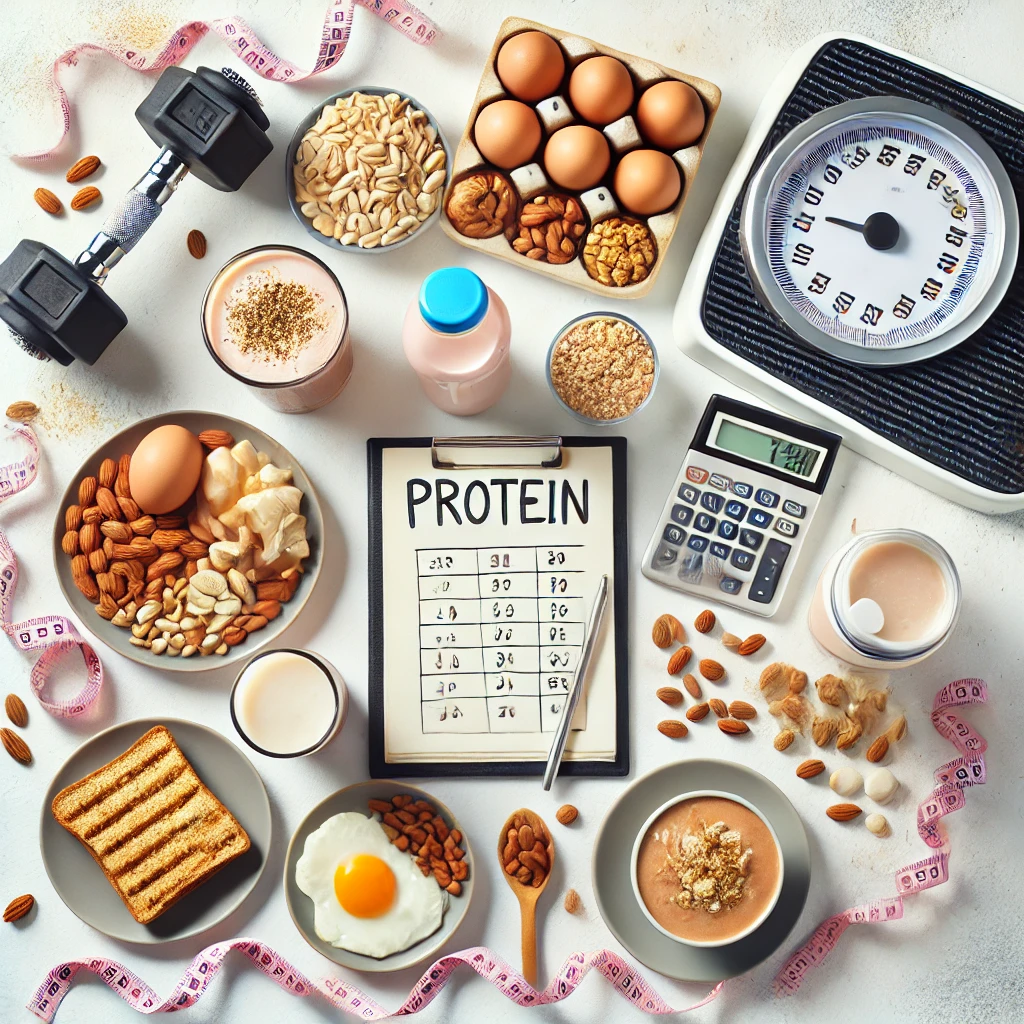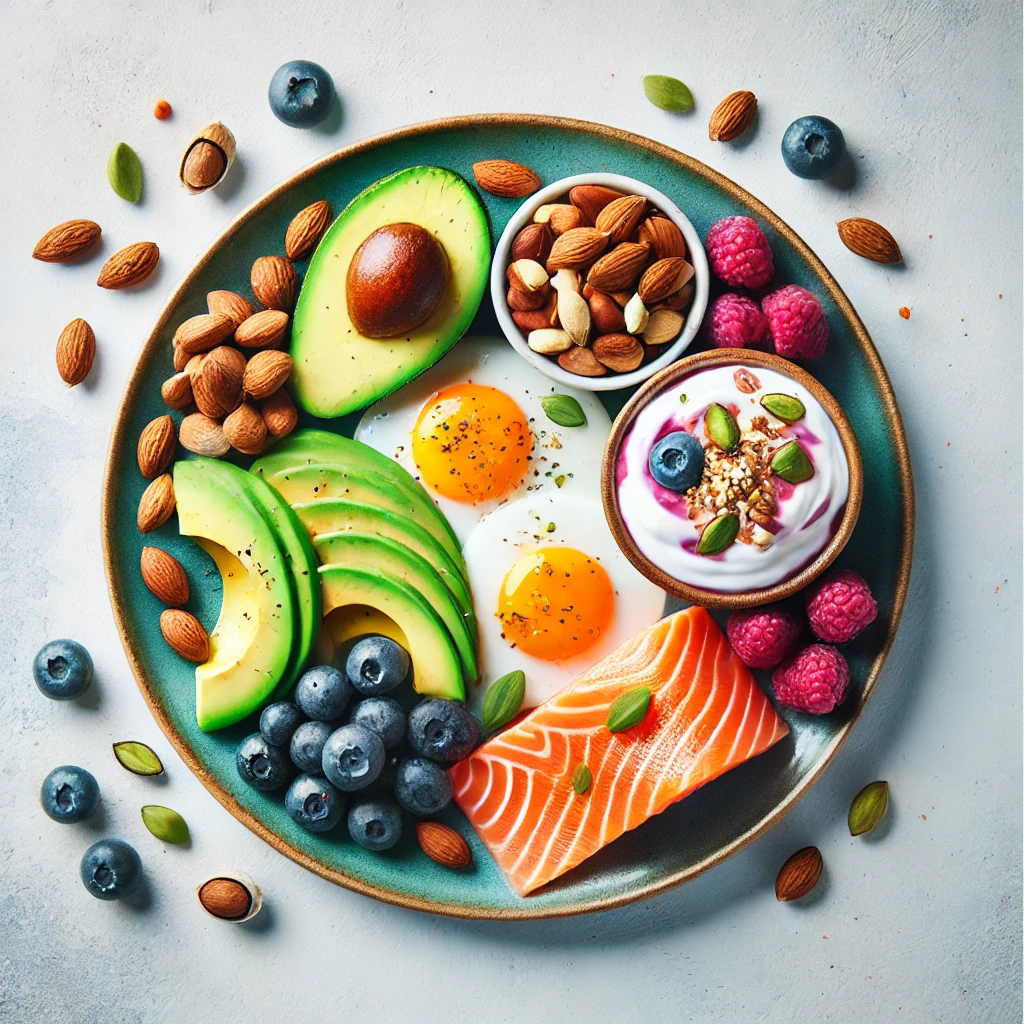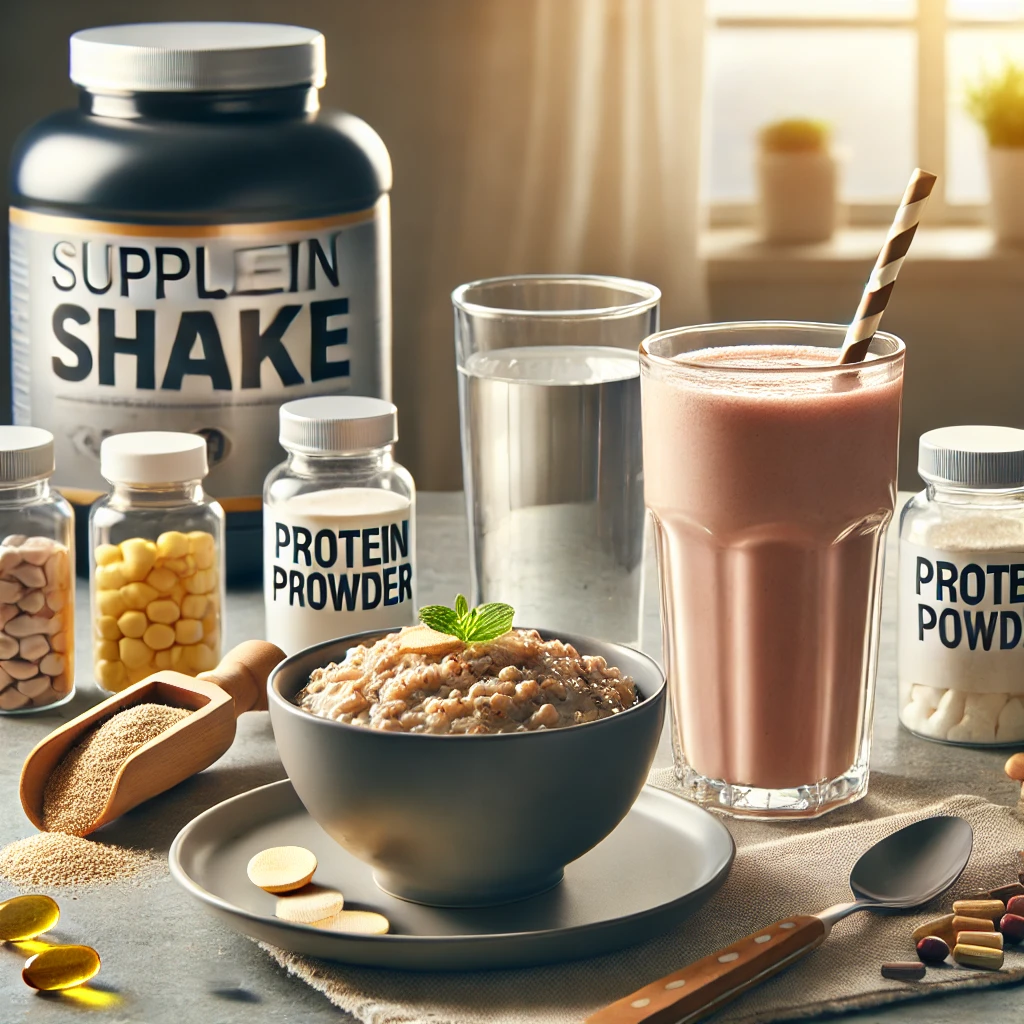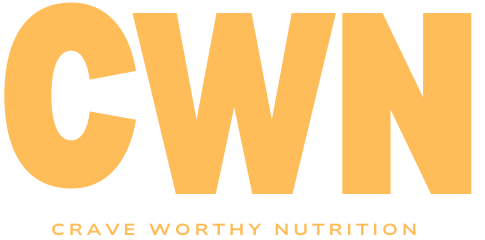
Are you looking to jumpstart your morning with a nutritious and energizing meal?
Look no further than a high protein breakfast to fuel your day.
Starting your day with a protein-rich meal can help keep you full, satisfied, and focused until your next meal.
In this blog post, we will explore the importance of a high protein breakfast, understanding your protein needs, quick and easy high protein breakfast ideas, make-ahead protein-packed breakfasts, vegan and vegetarian options, incorporating whole foods for a protein boost, the role of supplements, and staying hydrated and balanced throughout the day.
The Importance of a Protein-Rich Breakfast
Fueling your mornings with a high protein breakfast sets a solid foundation for the day ahead.
This crucial first meal plays a significant role in how your body performs, both mentally and physically, throughout your busy day.
Protein at breakfast helps to keep blood sugar levels stable, ensuring that mid-morning slump is kept at bay.
With stable blood sugar levels, the urge to reach for sugary snacks decreases, promoting healthier eating habits and choices as the day progresses.
Incorporating protein into your morning meal is also essential for muscle health.
Whether you’re an athlete, a fitness enthusiast, or simply someone trying to maintain a healthy physique, protein aids in muscle repair and growth.
This is particularly important if you engage in morning workouts, as your muscles need the right nutrients to recover and strengthen.
Moreover, a protein-rich breakfast has been shown to significantly enhance satiety.
Feeling full and satisfied after eating can prevent overeating and snacking.
This feeling of fullness lasts longer than that provided by a carbohydrate-heavy breakfast, making it easier to concentrate on daily tasks without being distracted by hunger pangs.
But the benefits of a protein-rich breakfast extend beyond physical health.
Cognitive function also sees an improvement, as proteins are vital for the brain to produce neurotransmitters, the chemicals responsible for our mood and cognitive functions.
Starting the day with adequate protein can help improve focus, memory, and mood, making it easier to tackle the day’s challenges.
Therefore, skipping the protein in your breakfast is like skipping the fuel your body and mind need to operate efficiently.
By prioritizing protein in the morning, you’re not just nourishing your body; you’re setting yourself up for a day of success, productivity, and well-being.
Understanding Your Protein Needs

To tailor your high protein breakfast to your personal health and fitness goals, it’s essential to have a grasp of how much protein you actually need.
The Recommended Dietary Allowance (RDA) for protein is 0.8 grams per kilogram of body weight per day for the average adult, but this is simply a baseline for maintaining basic nutritional requirements and preventing deficiency.
For those who are more active, trying to build muscle, or looking to lose weight, the protein needs can be significantly higher.
Athletes or individuals engaged in regular intense exercise might require 1.2 to 2.0 grams of protein per kilogram of body weight daily.
This increased need supports muscle repair, growth, and overall recovery.
Similarly, if you’re on a weight loss journey, increasing protein intake can aid in preserving lean muscle mass while on a calorie-restricted diet, all while enhancing feelings of fullness which can reduce overall calorie intake.
It’s also worth noting that as we age, protein requirements may increase to help mitigate the loss of muscle mass and strength that occurs with aging—a condition known as sarcopenia.
For older adults, intake levels of up to 1.2 grams of protein per kilogram of body weight per day are considered beneficial for maintaining muscle health and function.
Given these varying needs, calculating your specific protein requirements can provide a more targeted approach to planning your high protein breakfasts and overall diet.
Remember, though, that your protein needs should be met through a combination of different sources to ensure you’re receiving a wide array of essential amino acids.
While animal products are complete proteins containing all nine essential amino acids, plant-based proteins can be combined (like beans and rice) to form complete proteins.
Monitoring your protein intake and adjusting it based on your activity level, health goals, and dietary preferences will help in optimizing your nutritional status and achieving your personal health and fitness objectives.
Quick and Easy High Protein Breakfast Ideas

On those mornings when time is of the essence but you still want to kick off your day with a nutritious, protein-packed meal, there are several quick and easy options that will have you out the door in no time.
One simple yet satisfying choice is Greek yogurt topped with a mix of nuts and fresh fruit. This combination not only provides a good protein kick but also offers healthy fats and vitamins to start your day right.
For a more portable option, consider whipping up a protein smoothie.
Blend together your favorite protein powder, almond milk, and a handful of berries for a delicious, on-the-go breakfast that will keep you full until lunchtime.
Scrambled eggs are another versatile and quick high protein breakfast choice.
Toss in some vegetables like spinach, tomatoes, or bell peppers for added nutrients, and serve with a side of avocado for healthy fats and fiber.
This meal packs a powerful protein punch and can be prepared in under ten minutes.
For those who enjoy a bit of crunch in the morning, a high-protein cereal with almond milk or a slice of whole-grain toast with peanut or almond butter are both excellent choices.
Adding a sprinkle of chia seeds or hemp seeds can further boost the protein content and add a delightful texture.
Don’t overlook the simplicity of hard-boiled eggs.
They can be cooked in advance and stored in the refrigerator, making them a perfect grab-and-go high protein breakfast option.
These quick and easy high protein breakfast ideas are designed to fit into your busy schedule, ensuring that even on the most hectic mornings, you can still fuel your body with the essential nutrients it needs to power through the day.
Whether you prefer sweet or savory in the morning, incorporating these ideas into your breakfast routine can help you meet your protein needs and keep your energy levels steady.
Make-Ahead Protein-Packed Breakfasts

For those who value efficiency in their morning routine or simply aren’t morning people, make-ahead protein-packed breakfasts are a game-changer.
They allow for a few extra minutes of sleep or a more leisurely start to the day, all while ensuring you’re still getting a high-quality, protein-rich meal.
One of the most popular and versatile options is overnight oats.
By mixing oats with a high-protein liquid such as Greek yogurt or a plant-based milk fortified with pea protein, and then adding a scoop of your favorite protein powder, you create a no-cook breakfast that’s ready to eat straight from the fridge.
Incorporating chia seeds not only thickens the mixture but also adds additional protein and fiber.
Customize your oats with toppings like nuts, seeds, or fresh fruit right before serving for added texture and nutrients.
Egg muffins are another fantastic make-ahead option that packs a significant protein punch.
Whisk together eggs, your choice of vegetables, meats, and cheese, then pour the mixture into muffin tins and bake.
These portable breakfasts are perfect for those mornings when you need to eat on the run and can be easily reheated for a quick meal.
For those with a sweet tooth, protein-packed breakfast bars or muffins can be made in advance and stored for when you’re in need of a quick and satisfying breakfast or snack.
Using ingredients like almond flour, eggs, nut butters, and protein powder, these treats can be customized with additions like dark chocolate chips, dried fruit, or nuts to suit your tastes and keep you fueled throughout the morning.
Not only do these make-ahead breakfasts save time, but they also remove the temptation to skip breakfast or grab a less nutritious option when in a rush.
Preparing these meals in advance ensures that you’re starting your day with a satisfying, protein-filled meal that supports your health goals and keeps you energized throughout the morning.
Vegan and Vegetarian High Protein Breakfasts

Embracing a vegan or vegetarian lifestyle doesn’t mean compromising on your morning protein intake.
There are a plethora of plant-based foods rich in protein that can create fulfilling and nutritious breakfasts to power your day.
A standout option is a tofu scramble, which can easily mimic the texture and satisfaction of scrambled eggs.
Infuse it with turmeric for color, and add a mix of your favorite vegetables like spinach, mushrooms, and bell peppers for a fiber-rich, protein-packed start.
Another innovative and hearty choice is quinoa porridge.
Unlike most grains, quinoa is a complete protein, offering all nine essential amino acids your body needs.
Cook it in almond milk, stir in a tablespoon of almond butter for extra protein and creaminess, and top with a generous sprinkle of pumpkin seeds, hemp seeds, or sliced almonds.
These add-ons not only enhance the texture but also contribute additional protein and healthy fats.
For a cold, refreshing start, consider a plant-based protein smoothie.
Blend together a high-quality vegan protein powder, a handful of spinach or kale for your greens, a frozen banana for natural sweetness, and a dash of chia seeds for omega-3s and extra protein.
Use unsweetened plant-based milk to achieve the desired consistency while keeping the focus on protein.
Chickpea flour pancakes, also known as besan chilla, offer a savory twist to the traditional pancake.
Mix chickpea flour with water, spices, and your choice of diced vegetables for a delicious, protein-filled breakfast pancake that’s both unique and satisfying.
Lastly, embracing the versatility of legumes, a morning bowl of lentils mixed with avocados, tomatoes, and a sprinkle of pumpkin seeds can be both refreshing and deeply nourishing.
Lentils, like quinoa, are a fantastic source of plant-based protein and can be prepared in a variety of ways to suit any taste.
By incorporating these vegan and vegetarian options into your morning routine, you ensure a diverse, protein-rich diet that supports your health goals without sacrificing flavor or satisfaction.
Incorporating Whole Foods for a Protein Boost

Incorporating whole foods into your diet is a key strategy for boosting your protein intake naturally, while also benefiting from a host of other essential nutrients these foods provide.
Whole foods, in their unprocessed or minimally processed states, deliver protein along with a rich supply of vitamins, minerals, fiber, and antioxidants, contributing to overall health and well-being.
For a protein-rich start to the day, consider options like eggs, which are versatile and can be prepared in numerous ways to suit any taste preference.
Eggs are not only a high-quality protein source but also contain essential vitamins and minerals.
Pairing eggs with vegetables and whole grains, such as spinach and whole-grain toast, can amplify the nutritional content of your breakfast, offering a well-rounded meal to fuel your morning activities.
Lean meats such as turkey or chicken sausage can be another excellent addition to a high protein breakfast, especially for those looking for substantial, savory options.
These meats are not only rich in protein but also provide important B vitamins and minerals such as iron.
For those preferring plant-based sources, legumes like black beans or lentils can be an outstanding addition to breakfast dishes, such as in a hearty morning burrito or a warming lentil stew.
Nuts and seeds, including almonds, chia seeds, and flaxseeds, offer both protein and healthy fats, making them perfect for topping oatmeal or yogurt.
By focusing on whole foods, you can creatively craft breakfasts that are not only high in protein but also diverse in flavors and textures.
This approach ensures that your morning meal is not just nourishing but also enjoyable, setting a positive tone for the rest of the day.
Incorporating a variety of these protein-rich whole foods can help meet your dietary needs and support your lifestyle, whether you’re aiming for fitness goals or simply seeking to maintain your health.
The Role of Supplements in a High Protein Breakfast

Incorporating supplements into your morning meal can serve as a strategic addition for those looking to maximize their protein intake.
With the busy pace of modern life, protein powders and other supplement forms present a practical solution for ensuring you meet your daily protein requirements.
Among the various types of protein supplements, whey protein is highly popular.
However, for individuals with dietary preferences or restrictions, such as vegans, plant-based proteins like pea, hemp, or rice protein offer an excellent alternative that aligns with their lifestyle choices.
Adding a scoop of protein powder to your morning smoothie or oatmeal not only enhances the protein content but also can introduce an additional layer of flavor to your meal.
For those who prefer baking, incorporating protein powder into muffins, pancakes, or homemade breakfast bars can transform these items into a more nutrient-dense option, providing sustained energy throughout the morning.
It’s important to note, however, that while supplements can play a helpful role in meeting protein needs, they should complement, not replace, the proteins obtained from whole foods.
Whole foods come with a broader spectrum of nutrients, including vitamins, minerals, and fiber, which are essential for overall health.
Therefore, supplements should be viewed as an adjunct to, rather than the cornerstone of, a balanced and high-protein breakfast regimen.
By thoughtfully integrating protein supplements into your diet, you can effectively tailor your protein intake to support your health goals, workout recovery, and dietary needs.
Staying Hydrated and Balanced

Hydration is a key component of a healthy diet, especially after starting your day with a high-protein breakfast. Consuming adequate fluids such as water, herbal teas, or naturally flavored water is crucial for maintaining optimal energy levels, supporting digestion, and facilitating the body’s natural processes.
This aspect of your dietary regimen plays a pivotal role in enhancing your overall health and ensuring that you’re able to stay focused and active throughout your day.
Equally important to hydration is the maintenance of a balanced diet.
Integrating a variety of foods in your meals ensures that, in addition to protein, you’re also getting a healthy mix of carbohydrates and fats.
These macronutrients work together to provide you with sustained energy, aid in nutrient absorption, and contribute to satiety, helping you manage hunger and maintain productivity.
Opting for complex carbohydrates such as whole grains, fruits, and vegetables, alongside healthy fats found in nuts, seeds, avocados, and olive oil, can amplify the benefits of your high-protein breakfast.
This approach not only supports muscle health and recovery but also promotes cognitive function and emotional well-being.
Remember, while protein is vital for kickstarting your day, the synergy of staying well-hydrated and consuming a balanced diet cannot be overstated.
These elements are foundational to achieving a state of holistic health and maximizing the potential of your active lifestyle.
By paying attention to both your hydration levels and the balance of nutrients in your diet, you set the stage for a day filled with energy, focus, and overall wellness.




